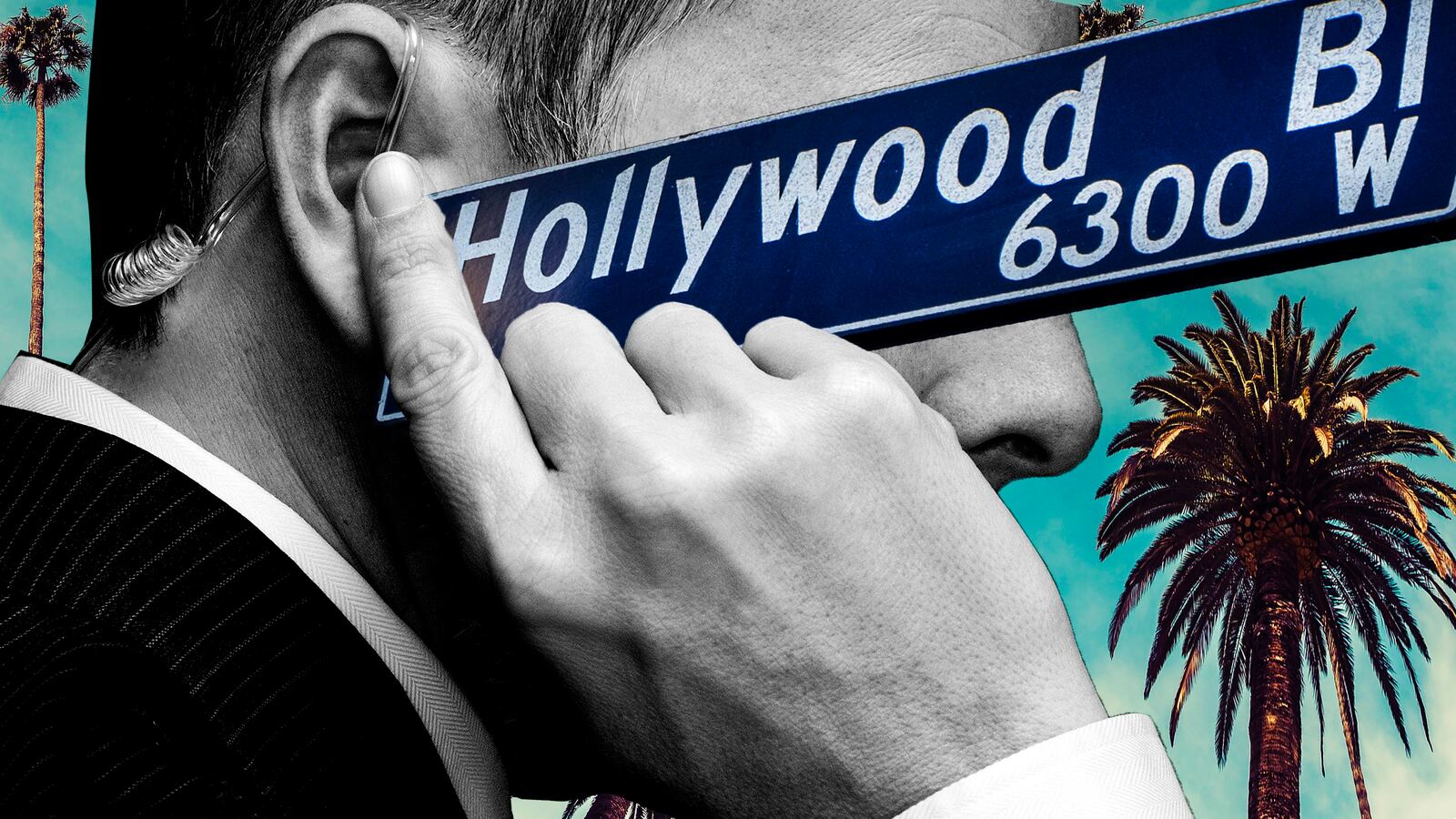On New Year’s Eve, just hours after Post Malone debuted a giant face tattoo of a gauntlet and flail, TMZ published a video of the rapper chatting with their cameraman on a New York City street. As Post answers questions about his ink (“It’s a giant spike ball on a chain. It’s pretty brutal.”), he’s flanked by three thickset men in black. At first glance, they look like standard bodyguards, the sturdy, stoic keep it moving types. Effectively, they are that, but they’re also members of the Force Protection Agency, a paramilitary squadron of ex-Navy Seals, former cops, and current service members who call themselves, without irony, “The Secret Service of Hollywood.”
The Force Protection Agency was founded in 2017 by Russell Stuart, a former California State Guard officer turned security specialist who says he saw a hole in celebrity protection. Musicians and celebrities were hiring friends, club bouncers, and random big guys to keep the fans at bay. Child’s play. They needed a militia.
“Most of our guys are ex-military, most are ex-cops. Some are actually still current military and current cops. It would be a very small handful of people that truly only come from the security world only, meaning they were a nightclub bouncer or something to that effect,” says Stuart. “That’s part of the higher service that we provide. We’re trying to set ourselves far apart from anyone else.”
Over small bites at the rooftop restaurant of the Montage in Beverly Hills, Stuart explained that, contrary to common perception, the name is not an homage to the Pentagon Force Protection Agency, the law-enforcement organization dedicated to protecting the Department of Defense from terrorism, chemical warfare, and explosive threats—though their company logo doesn’t do much to make his case.
The image, emblazoned on Stuart’s hat, bears a striking resemblance to the Pentagon Force Protection Agency seal, but somehow more Hollywood, like something a cartoon guard might wear in a Pixar movie: a navy blue circle speckled with white stars and a bald eagle, wings spread. On the outer rim, where you might normally see “Pentagon Force Protection Agency. Semper Vigilans,” this one reads: “Force Protection Agency. Defend. Enforce. Assist.”

Instead, Stuart said, the moniker comes from the official term “force protection,” or FP—the Department of Defense’s phrase, defined in the DOD Dictionary of Military and Associated Terms as “preventive measures taken to mitigate hostile actions against Department of Defense personnel (to include family members), resources, facilities, and critical information.” The phrase was coined, along with the idea of force protection, back in 1983 after two truck bombs struck buildings in Beirut, killing more than 300 people—most of them French and American service members on a peacekeeping mission during the Lebanese Civil War. After that, the DoD implemented force protection throughout their operation to ensure the military itself was protected. Stuart’s company nods to that, but instead of soldiers, it’s Foo Fighters.
After working in security for two decades, Stuart had a roster of connections in the entertainment world and hit the ground running with several high-profile clients: Foo Fighters, Linkin Park, and Jennifer Lopez. In the past three years, the business expanded, opening up new locations in New York, Florida, and Wyoming. The reasons for the expansion were obvious—New York, for being the center of the world; Miami, for its nightlife and rap scene; and Wyoming, well, that part is apparently top secret. The non-government agency was getting into some real government work, and Stuart couldn’t comment.
“Some clients want someone to go out with them when they have an event, a red carpet. Some people, like Post Malone, it’s an all-encompassing thing,” offers Stuart. “We have people with him every day. I can’t say how many [guys are with him]. More than one, less than 10. We’re constantly monitoring threats, which is a real thing—threats against their lives, threats to come and hurt them in some fashion. I will not mention who has [had threats] but I just left a lunch meeting with the FBI, on my way here, about a threat against someone. Someone you have heard of.”
The Force Protection Agency now works with Jennifer Lopez, Mariah Carey, Diddy, Linkin Park, Kelly Clarkson, and their largest client, Post Malone. In total, they have 50 active clients, 65 people on payroll—most of whom have decades of combat, military, or law-enforcement experience—and a fleet of drones.
One big difference between FPA and a normal bodyguard, Stuart said, beyond the White House Down vibes, is planning. When FPA officers are hired to cover an event, they’ll go there in advance, assess for potential “risk factors,” and plan accordingly. “In the protective-services world, it’s not just about threats, it’s about planning,” he says. “Planning, I believe, is what truly sets us apart.”
Stuart declined to comment on how often his clients receive threats or what kinds of risk factors someone like Post Malone might face, but given that the man is literally a card-carrying member of the NRA and reportedly owns his own tank, the possibilities could be greater than I’m giving him credit for (representatives for Post Malone did not respond to requests for comment about the FPA or his tank). For this kind of strategizing, he said, you need something more than a guard license off the internet. That’s why they’re paid the big bucks—which, though he declined to specify the exact costs of their services, can amount to hundreds of thousands of dollars per year.
Only in Hollywood, folks.


